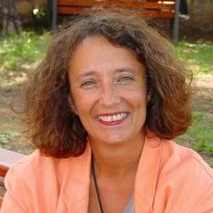The Evaluation of Urban Projects: Integrated Methods and Operative Tools
A special issue of Sustainability (ISSN 2071-1050). This special issue belongs to the section "Sustainable Urban and Rural Development".
Deadline for manuscript submissions: closed (30 June 2022) | Viewed by 11801
Special Issue Editors
Interests: public and private feasibility of urban transformation; economic evaluation of environmental and cultural assets; real estate market; economic valuation of real estate investment projects; environmental economics; sustainability; multi-criteria decision analysis
Special Issues, Collections and Topics in MDPI journals
Interests: real estate valuation; urban development; valuation risk; analysis investment; valuation property; management asset; housing economics; project financing; urban economics; financial analysis; real estate management; project management; applied econometrics; environmental economics; urban sustainability
Special Issues, Collections and Topics in MDPI journals
Interests: economic evaluation of projects; environmental economy; evaluation of ecosystem services; decision-support systems; multicriteria analysis; mathematical programming
Special Issues, Collections and Topics in MDPI journals
Special Issue Information
Dear Colleagues,
Many cities are characterized by high building and housing density, significant problems of liveability linked to changing climatic conditions, excessive consumption of energy and environmental resources, as well as the production of pollutants in the atmosphere and scarcity of green areas and services for the people. It is recognized, therefore, that in the processes of transformation/valorization of urban settlements, it is necessary to propose and implement sustainable interventions capable of pursuing multiple objectives concerning, for example, a more rational use of the resources and territory; the improvement of the quality level of the urban context through the creation of new green areas; and the social and economic–cultural development of the population also through ecosystem services. These types of services, for example, set off processes of transformation in an integrated key: setting in motion productive activities useful for the economic development of the territory; improving the quality of life of citizens; reducing the consumption of energy resources; and increasing the real estate values.
In the processes of settlement transformation, the relationships between multiple elements to be considered together in order to express judgements of convenience on interventions in urban areas require the use of multicriteria and multidimensional evaluation methods and tools, as well as an integrated use of traditional tools and methods for estimating their cost, market, and transformation value, and evaluating the financial and economic viability of projects. The implementation of evaluation methodologies and tools in an integrated way can include the processing and analysis of spatial data, such as Nightlights data, through GIS; the use of programming frameworks in which to structure mathematical algorithms to support evaluation processes related to urban initiatives; the use of computational methods for the analysis of the urban real estate system; and the use of participatory procedures based on forms of public–private partnership in which to take into account the interests of stakeholders involved in settlement transformation initiatives.
In this perspective, this Special Issue is dedicated to collecting and disseminating knowledge related to the development of the most recent methodologies aimed at overcoming the limitations of the actual analysis methods. This proposes the use of tools, also used in different disciplines, that in project evaluation use an integrated approach in which an adequate identification and quantification of spatial, architectural, monetary, environmental, ecological, energy, and temporal aspects can lead to the definition, choice, financing, and implementation, as well as management of sustainable interventions through informed decision-making processes.
Original papers related to the above topics and also dealing generally with methodologies, numerical and experimental investigations, and case-studies are welcome.
Thanks for your contributions.
Prof. Maria Rosaria Guarini
Prof. Pierluigi Morano
Mr. Francesco Sica
Guest Editors
Manuscript Submission Information
Manuscripts should be submitted online at www.mdpi.com by registering and logging in to this website. Once you are registered, click here to go to the submission form. Manuscripts can be submitted until the deadline. All submissions that pass pre-check are peer-reviewed. Accepted papers will be published continuously in the journal (as soon as accepted) and will be listed together on the special issue website. Research articles, review articles as well as short communications are invited. For planned papers, a title and short abstract (about 100 words) can be sent to the Editorial Office for announcement on this website.
Submitted manuscripts should not have been published previously, nor be under consideration for publication elsewhere (except conference proceedings papers). All manuscripts are thoroughly refereed through a single-blind peer-review process. A guide for authors and other relevant information for submission of manuscripts is available on the Instructions for Authors page. Sustainability is an international peer-reviewed open access semimonthly journal published by MDPI.
Please visit the Instructions for Authors page before submitting a manuscript. The Article Processing Charge (APC) for publication in this open access journal is 2400 CHF (Swiss Francs). Submitted papers should be well formatted and use good English. Authors may use MDPI's English editing service prior to publication or during author revisions.
Keywords
- economic evaluation
- multi-criteria decision analysis
- integrated assessment framework
- operative tools
- urban sustainable development







